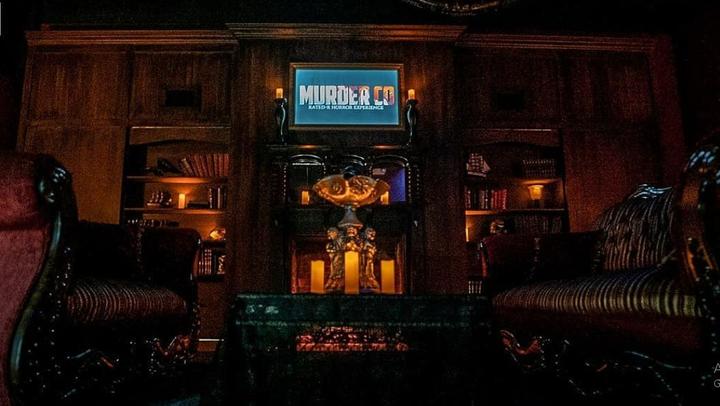Minneapolis Escape Room-- Interesting Challenge Difficulties for All Ages
Minneapolis Escape Room-- Interesting Challenge Difficulties for All Ages
Blog Article
Team Techniques: Exactly How to Team up Efficiently in an Escape Area
Browsing the complexities of a retreat room necessitates even more than plain enthusiasm; it needs a well-coordinated strategy based in clear interaction, critical duty projects, and experienced time management. Teams must proactively pay attention per member's understandings, assign functions that align with specific staminas, and preserve regular check-ins to ensure focus and prevent redundancy. By fostering an environment that values cohesion and flexibility, teams can substantially enhance their efficiency and success rates. The subtleties of these strategies can change the experience, but exactly how exactly can they be carried out to optimize the possibility for success?
Establish Clear Communication

To assist in clear interaction, it is crucial to assign a main point of call for info dissemination. Short, concentrated updates from each group member can keep the group notified without frustrating them with details.
Designate Roles Purposefully
While clear interaction establishes the structure for efficient teamwork, designating duties purposefully guarantees that each group participant's toughness are made use of properly. In an escape space circumstance, the time-sensitive and complex nature of difficulties requires a well-organized technique to job delegation. By identifying and leveraging individual proficiencies, groups can enhance their analytical abilities and boost overall efficiency.
Someone with an eager eye for detail may succeed in locating covert items, while a rational thinker might be much better matched to addressing problems. This duty frequently requires strong organizational and interpersonal abilities.
2nd, make sure that duties are adaptable and adaptable. As brand-new difficulties emerge, the group needs to be able to pivot, reallocating jobs as needed. This versatility assists maintain momentum and avoids bottlenecks that can happen as a result of stiff function assignments.
Eventually, a calculated technique to function job not only makes best use of the toughness of each staff member however also cultivates a cohesive atmosphere, driving the team in the direction of a successful escape.
Use Diverse Skills
Identifying and harnessing the varied skills within your team can significantly boost your efficiency in an escape space. Each staff member brings one-of-a-kind staminas to the table, and properly leveraging these capabilities can quicken problem-solving and boost overall efficiency. A group participant with find more information strong logical skills could excel at understanding complicated codes or patterns, while one more with keen observational capacities may swiftly detect hidden clues that others could neglect.
Motivate team members to voice their understandings and concepts immediately, making sure that all prospective options are taken into consideration. Additionally, assigning tasks that line up with each member's strengths can avoid traffic jams and guarantee that progress is continual.
In addition, diversity in abilities commonly equates to diversity in assuming designs, which is indispensable in an escape room setup. While some obstacles may call for rational reasoning and accuracy, others could profit from imaginative and association of ideas. By acknowledging and leveraging this variety, teams can address a more comprehensive series of obstacles a lot more efficiently, thereby enhancing their opportunities of a successful retreat.
Manage Time Successfully

Identify visible challenges and split jobs based on group members' toughness, guaranteeing that no one is still. This practice can aid maintain the team concentrated and stop time from sliding away unnoticed.
Additionally, stay clear of one-track mind. If a puzzle is taking as well long, revolve team participants or carry on to one more obstacle, returning later you could try here with fresh viewpoints. Communication is critical-- keep everyone upgraded on solved problems and remaining jobs to prevent redundant efforts.
Last but not least, use any tips or hints sparingly yet tactically - best escape room. Understanding when to request for help can conserve useful time. By sticking to these time management principles, groups can dramatically boost their chances of an effective and pleasurable escape area experience
Debrief and Mirror
Reflection is a crucial aspect of group development and enhancement in the context of escape areas. Once the difficulty is finished, whether successfully or otherwise, it is important for the group to participate in a structured debriefing session. This process allows employee to evaluate their efficiency, recognize toughness, and pinpoint locations for renovation.
Begin the debrief by reviewing what worked out. Highlight certain instances of reliable interaction, analytic, and partnership. Recognizing these favorable actions strengthens them and encourages their repeating in future difficulties.
Following, address the obstacles came across. Go over moments of confusion, miscommunication, or inefficient methods. Motivate an open and constructive dialogue where employee can share their point of views without anxiety of criticism. This promotes a culture of continuous improvement and knowing.
Conclusion
Finally, effective cooperation in a retreat room is predicated upon clear communication, tactical duty assignments, the reliable use of diverse skills, and skilled time administration. Regular check-ins and structured debriefings are crucial for keeping focus and fostering continuous renovation. By creating a cohesive and flexible group setting, the possibility of efficiently solving challenges and attaining the goal of getting away the area is substantially enhanced. This method not only makes sure success however also promotes collective growth and read discovering.
Report this page